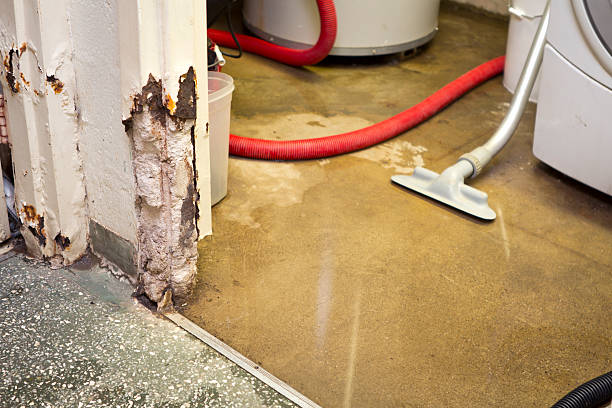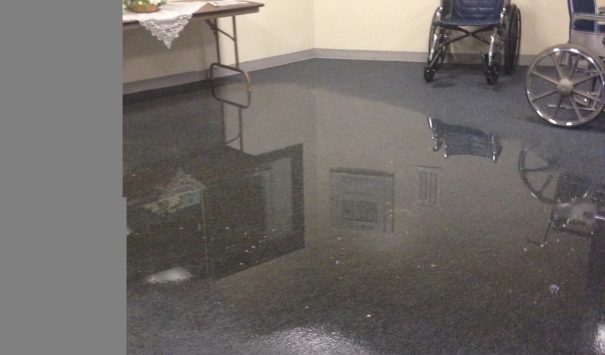Crucial Guidelines for Residential Property Owners Dealing with Broken Hot Water Systems
Crucial Guidelines for Residential Property Owners Dealing with Broken Hot Water Systems
Blog Article
Right here below you will find a lot of quality guidance in relation to What Do You Do When Your Water Heater Bursts?.

Whether it is located in the cellar or a different space, busted water heaters can create stress and anxiety. A common unit holds 80 gallons, so an overnight leakage will bring about a flooding. This results in major property damage with drenched walls and floorings. Besides, having no warm water supply is likewise bothersome. If you are handling these concerns, remember of the following:
Turn Off Power Source
Prior to calling the plumber, shut down a gas water heater by turning the temperature level dial. This is normally located at the top of the thermostat. Switch off the circuit breaker if you have a model that runs on electrical power. This will certainly avoid electrocution, specifically if there is a leakage as water is a conductor. Usually, the heating element shuts down when the water strikes a particular temperature. With a busted container, it might malfunction. Cutting it off ensures you remain secure.
Cut Off the Cold Water Supply
Cut off the containers tap water supply from the resource. When your storage tank is in good problem, the chilly water quits filling up when the storage tank is full. If you can not discover it or reach it, you have to turn off that primary water supply line outside your residential property.
Call the Plumber
After doing the first 2 safety actions, you must call your plumber to come right away to take care of a ruptured water heating unit. There are usually indications that your aging water heating unit has sediment buildup in the interior.
Don't await major flooding to call the plumber. By then, you will certainly need to invest even more to recover your home. Instead, as soon as you spot these signs, have actually a professional involved evaluate your hot water heater say thanks to. Commonly, hot water heater have a lifespan of regarding 8 to 12 years. With normal assessment and also upkeep, you can lengthen its life.
Tidy up Property
After calling the plumber, document damage by making note as well as images so you can assert your homeowner's insurance. From there, begin the prompt cleanup. Secure any kind of important personal belongings to stop more saturating. Then, get rid of any kind of standing water to stop mold and mildew and mildew development. Make use of that to drain the water if you have a submersible water pump. Or else, the conventional bucket method will likewise work. Try to mop out whatever, including walls as well as walls. If you have an electric fan and also dehumidifier, keep them running to keep air flowing. This will assist discourage mold and mildew growth.
Bear in mind, if you observe any type of problems with your hot water heater, call the pros right now. You can not take this problem gently since a malfunctioning thermostat can elevate water temperature to a hazardously high level, leading to accidental burns. A broken heater stress relief valve can additionally trigger a surge. For best outcomes, obtain an annual check so your system gets examined, cleaned up, drained pipes, and re-filled, assuring ideal efficiency.
Whether it is situated in the cellar or a different area, busted water heating systems can create stress and anxiety. Prior to calling the plumber, closed off a gas water heating system by transforming the temperature level dial. After doing the initial 2 security actions, you need to call your plumber to come right away to fix a fractured water heater. If you have a submersible water pump, use that to drain pipes the water. Keep in mind, if you discover any concerns with your water heating system, call the pros right away.
Is My Water Heater Broken?
The Water Heater is Old
No appliance will last forever. This includes a home’s water heater. During its lifespan, residents are going to face a situation where a new water heater installation will be necessary. The biggest problem with this is that most people are not sure when their water heater expires. Not knowing this can lead to serious risks if the unit begins to act up due to old age.
Most makes and models of water heaters will last between eight and 10 years. While 10 years is the age when water heater replacement is highly recommended, the need to replace the unit may occur before this time or after. If the unit doesn’t show any symptoms of a problem, it is a good idea to replace it at the 10-year mark (from the manufacture date).
Some of the symptoms that indicate a new unit is needed include rusting, leaks, noises, and a failure to heat up the water. Also, note that not all units have a 10-year life expectancy. The main exception to this rule is that a gas unit will last for six to eight years.
Rusty Heater Inlet Valve or Water
While steel is the strongest material on earth, it does have a weakness – rust. If corrosion occurs on a steel surface, it will begin to spread and eat through the steel in certain areas. On water tanks and pipes that are made of steel, rust is a warning sign of an impending leak.
The issue for many is trying to figure out if the rust is coming from the water heater or the pipes that lead to the faucet. If rust is seen, it is a clear indication that water heater service from the professionals is needed.
If rusty water appears out of the faucets in the bathtub or sink, it likely means a rusty water heater. If there is rust near the water inlet or the pressure relief valve, rust has likely developed inside the tank. If tap water appears rusty, it may be an issue with the pipes.
Strange Sounds from the Water Heater
Are there strange sounds coming from the tank? As a water heater gets older, rumbling noises may develop and get louder and louder as the water in the tank heats up. In homes where large amounts of hot water are used, the issue is likely going to be even more obvious when more serious issues arise. If there is a strange or loud noise coming from the unit, it is probably because of sediment buildup. A good way to remedy this problem is by flushing the heater. If this does not work, then a new unit may need to be installed.
Leaks
As a water heater gets closer to the end of its useful life, there is a higher chance there will be water around the tank. If there is water, this usually means leaks are occurring. Based on where the unit is located in the home, a leak may result in serious property damage.
Leaks are usually caused by expansions in the metal tank. The expansions occur as time passes and as the inside body of the tank is exposed to multiple heating cycles per day. When a fracture forms, the gap will be slight enough to hold the water in; however, in more serious situations, this will not be the case. If the tank is idle, the water will not leak but when the metal expands during each heating system, small amounts of water will get through the gap.

We had been guided to that editorial on Water Heater Burst through an associate on our other website. Sharing is good. You never know, you may be doing someone a favor. Thanks a lot for your time invested reading it.
Go Deal Now Report this page